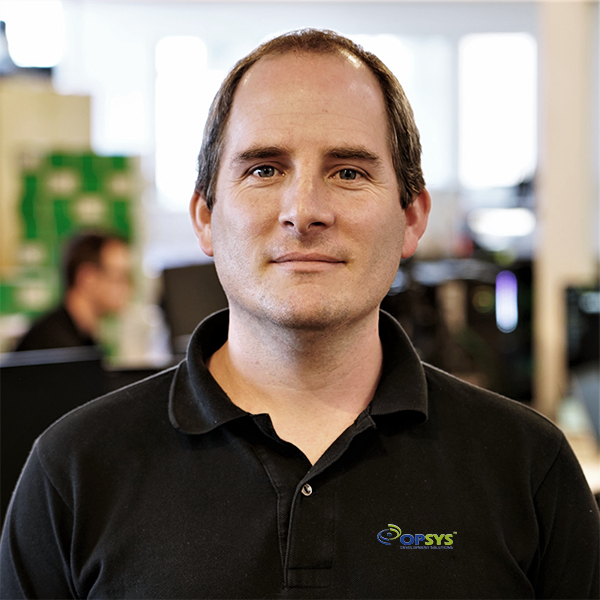 Sinclair — What is 7NOX?
Sinclair — What is 7NOX? |
june 2022 |
[an error occurred while processing this directive] |
|
7NOX is a
cloud-based BMS interface that automates the scheduling and billing
|
INTERVIEW
– Elwin McKay-Smith
[an error occurred while processing this directive]
| Articles |
| Interviews |
| Releases |
| New Products |
| Reviews |
| [an error occurred while processing this directive] |
| Editorial |
| Events |
| Sponsors |
| Site Search |
| Newsletters |
| [an error occurred while processing this directive] |
| Archives |
| Past Issues |
| Home |
| Editors |
| eDucation |
| [an error occurred while processing this directive] |
| Links |
| Software |
| [an error occurred while processing this directive] |
1.
 Sinclair — What is 7NOX?
Sinclair — What is 7NOX?
a.
Elwin McKay-Smith – 7NOX is a
cloud-based BMS interface that automates the scheduling and billing of on-demand/afterhours requests
for heating ventilation and air conditioning (HVAC)
2. Sinclair — How does
7NOX work?
a. Elwin McKay-Smith — The 7NOX
platform utilizes REST API technology to communicate between the 7NOX cloud
service and the site device located within the building. The site device is a
small Linux computer that communicates with BMS systems using BACnet protocol
to schedule on-demand/after-hours
HVAC requests. User requests are stored, managed, and updated on our
cloud servers; the site device queries the cloud service every five minutes.
The system manages both user and admin accounts.
3. Sinclair — What
sets OpSys Solutions apart from others?
a. Elwin McKay-Smith — Well, we understand
buildings inside out. Within our group of companies, we employ mechanical,
electrical, software and embedded system engineers. We’re not just a software
company. We bring a lot of hands-on, practical experience to BMS integration. We
understand the complexities of building systems, and we leverage that knowledge
when developing our software.
FMs and property
owners need a seamless solution, something that just works. Our primary goal is
to deliver a soft landing for stakeholders who need to get on with business as
usual. That’s why we’ve designed 7NOX to be user-friendly and easy to integrate
with any BMS system. But as we all know sometimes things don’t always go to
plan. BMS systems can be complicated. Our technical support team has a lot of
experience integrating with different systems as we have been in the BMS game
for over 25 years. We live and breathe BMS.
4. Sinclair — What are
the benefits of automating your after-hours program?
a. Elwin McKay-Smith — Good question.
Obviously with any automation process, one big benefit is time savings, and our
system is no different. Manual programs take up staff time. Someone has to
receive and execute the requests. They may even need an engineer to program the
BMS. Next, requests have to be recorded in a spreadsheet and updated when
tenants make changes. Last minute changes are what usually eat up the most
time. Finally, someone, usually the FM, has to generate and deliver the
invoices. All told, manual systems can get pretty time intensive.
Automated platforms
cut out all those steps. Tenants create and edit their own bookings in the
system. All requests are automatically recorded in the system too, so there are
fewer entry errors. And billing is also automated. Our platform delivers
invoices right to your inbox each month. They’re good to go, just forward on to
tenants. Our customers really benefit from the time savings. It frees their
staff up for more important tasks. Tenants love our platform too because
scheduling is easy and flexible. It’s become more popular with employers who
have adopted a hybrid work model.
5.
Sinclair — Interesting, tell me more about how
hybrid work is affecting after-hours automation programs.
a.
Elwin McKay-Smith — We’re seeing
after-hours programs in general becoming more popular because of hybrid and
remote work. The pandemic changed everything. We’re seeing a lot of building
floors being heated and cooled that are empty because workers are now at home
or only come in once or twice a week. It doesn’t make sense to run these
million-dollar systems for empty spaces. Building managers don’t like it and
tenants don’t like paying for it. Environmentalists certainly don’t like it.
And with a growth in popularity, naturally people start trying to lower costs
and automate tasks. After-hours automation is the right tool at the right time.
[an error occurred while processing this directive]
[Click Banner To Learn More]
[Home Page] [The Automator] [About] [Subscribe ] [Contact Us]